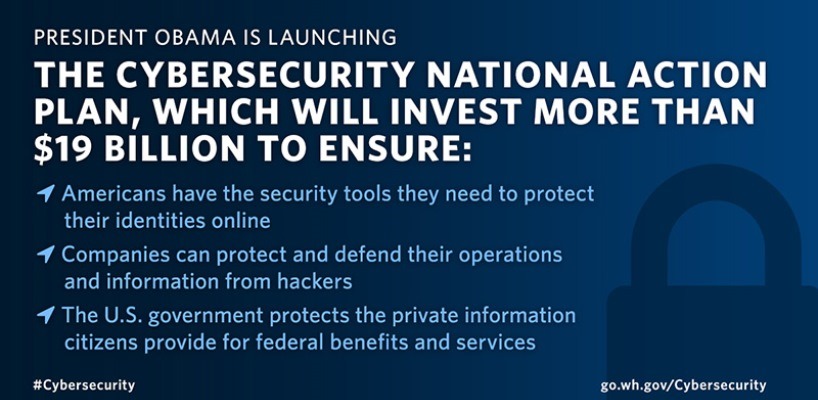As part of his 2016-2017 budget, President Obama ordered a multi-year plan to improve cybersecurity in the United States.
Called the Cybersecurity National Action Plan (CNAP), it includes cyber mandates for the Federal government, along with cooperative efforts with state and local governments and the private sector.
The budget proposal includes more than $19 billion in cybersecurity funding–an increase of 35 percent from last year. Included in the new proposals are a Commission on Enhancing National Cybersecurity, which will include experts from the private sector.
The budget also proposes the creation of a new position, Federal Chief Information Security Officer. This office will be charged with helping “retire, replace, and modernize legacy IT across the government.” A $3.1 billion Information Technology Modernization Fund will be created toward that end.
The effort also aims to educate the public on securing their privacy on-line. The plan envisions reaching out to cyber communities and tech firms to encourage strengthening their user protections. At the federal level, improvements are promised and the President has created a Federal Privacy Council “to make sure that the government does a better job of protecting your privacy online.”
On the law enforcement side, the budget increases funding for cyber investigations at the Department of Justice by 23 percent. This funding includes additions to the FBI budget. The plans for a Cyber Mission Force of 6,200 individuals continue to move forward with the Force to become fully active in 2018.
The current administration has had little success with its budget proposals in the past. Both Republican and Democratic Congresses have voted down the President’s submission in favor of either a continuing resolution or a budget crafted by the Congress. It remains to be seen if any of these cybersecurity proposals appear in the actual spending plan for 2016-2017.


